Period pain, also called dysmenorrhea, is one of the most common symptoms experienced during menstruation. For some, it is a mild discomfort, while for others, it can mean severe cramps that interfere with daily life and routine activities. In Ayurveda, this condition is referred to as Kashtartava, and it is mainly linked to an imbalance in the Vata dosha.
To understand this better, let us first look at the concept of Tridoshas in Ayurveda. The body is governed by three doshas—Vata, Pitta, and Kapha. Any disturbance or imbalance in these doshas can manifest as pain, discomfort, or illness. Period pain is most commonly influenced by Vata, but Pitta and Kapha can also play a role.
Vata Dosha governs all forms of movement in the body. One of its subtypes, Apana Vayu, is responsible for downward movements such as menstruation. When aggravated, Apana Vayu can cause spasms, cramps, pain, dryness, anxiety, and irregular menstrual flow.
Pitta Dosha represents heat and blood. If imbalanced, it can lead to symptoms such as a burning sensation, heavy bleeding, irritability, and anger during periods.
Kapha Dosha governs nourishment and stability. When disturbed, it may result in heaviness, dull aches, lethargy, and clot formation during menstruation.
Causes of Period Pain
From an Ayurvedic perspective, several lifestyle and dietary factors contribute to dysmenorrhea. Excessive intake of dry, cold, or irregular meals tends to aggravate Vata dosha. Similarly, suppression of natural urges, overexertion, or lack of proper rest during periods can worsen discomfort. Stress, anxiety, and sleeplessness also increase Vata imbalance, while poor digestion and weak Agni (digestive fire) further aggravate menstrual pain.
Ayurvedic Remedies for Period Pain
1) Dietary Recommendations
During menstruation, diet plays a crucial role in managing discomfort. It is best to avoid cold, raw, heavy, and oily foods, as they disturb the digestive balance and aggravate Vata. Caffeine and alcohol should also be limited. Instead, focus on warm, light, and easily digestible meals such as soups, herbal teas, khichdi, or red rice porridge. Drinking ajwain water can also be soothing. Spices like ginger, turmeric, cumin, fennel, ajwain, and cinnamon support digestion and reduce cramps.
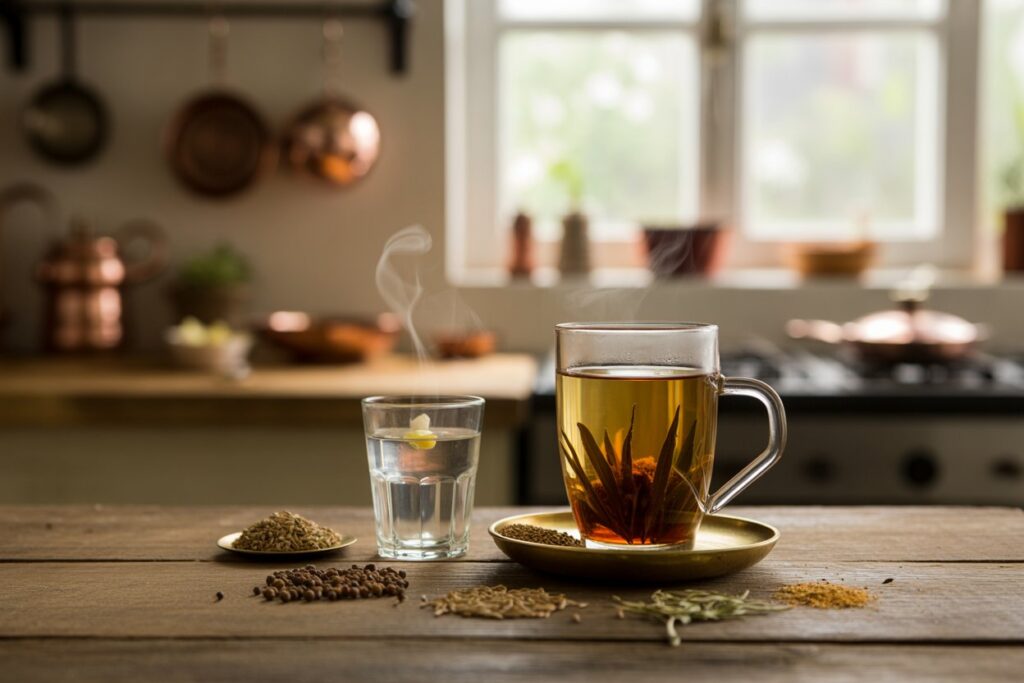
2) Lifestyle Support
A calm lifestyle during menstruation helps the body cope with pain. Mental stress, late nights, and intense exercise should be avoided, as these directly aggravate Vata dosha. Adequate rest is essential, and lying on the left lateral side often reduces pain. A warm compress on the lower abdomen is another simple yet effective home remedy for easing cramps.
Ayurvedic Medicines for Period Pain
Several classical Ayurvedic formulations are prescribed to support women’s reproductive health and relieve discomfort:
- Ashokarishta – Contains Ashoka, Dhataki, Musta, Shunthi, Ajaji, Daruharidra, and Triphala. It helps balance hormones and eases menstrual discomfort.
- Dashmoolarishta – Prepared from Bael, Agnimanth, Patla, Gambhari, Gokhura, Brihati, and Chitrak. It balances Vata dosha and reduces cramps.
- Kumaryasava – Made from Kumari (Aloe vera), Nagara, Pippali, Ela, Twak, and Patra. It promotes a healthy menstrual flow.
- Shatavari (Asparagus racemosus) – Known for nourishing the reproductive system, Shatavari balances both Pitta and Vata doshas.
Panchakarma Therapies
In addition to medicines, certain Panchakarma therapies are highly effective in managing period pain:
- Basti (Medicated Enema): Especially beneficial for Vata-related disorders, including dysmenorrhea.
- Abhyanga (Oil Massage): Helps relax the body, improve circulation, and reduce cramps.
- Swedana (Herbal Steam Therapy): Relieves stiffness and improves blood flow.
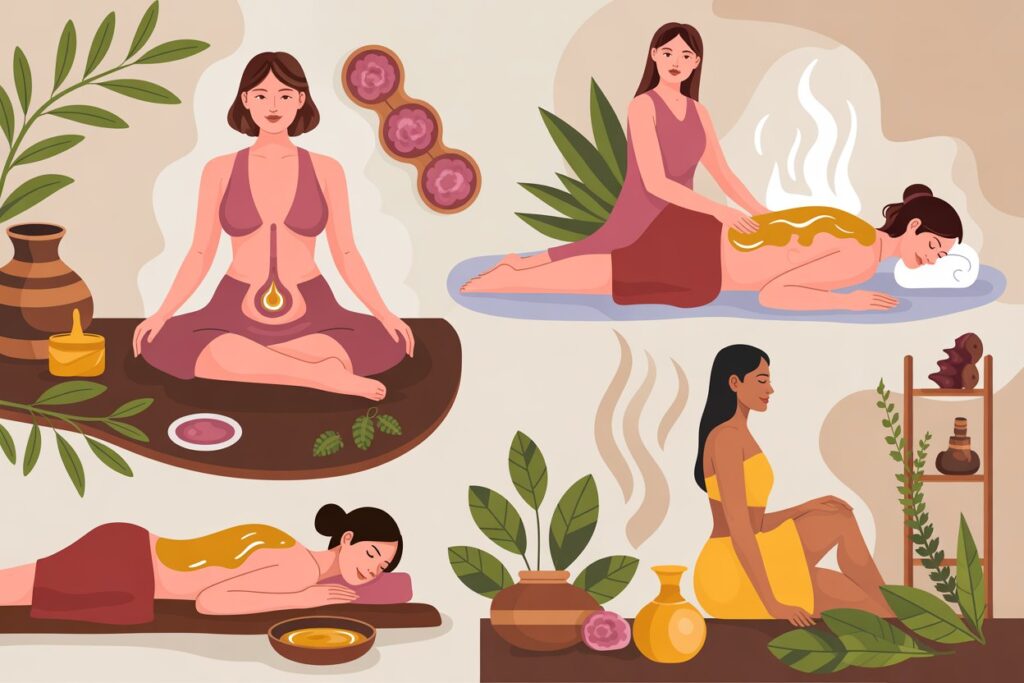
Note: Ayurvedic medicines and Panchakarma therapies must be taken only under the guidance of a qualified Ayurvedic consultant.
When to See a Doctor
While mild to moderate period pain is common, it is important to seek medical attention if the pain becomes severe, persistent, or interferes with daily activities. Consulting a doctor ensures that any underlying conditions are ruled out and proper treatment is provided.
By understanding the Ayurvedic causes of period pain and balancing the doshas through diet, lifestyle practices, and guided use of medicines and therapies, women can find natural relief from cramps and discomfort. With the right support and self-care, menstruation can become a more manageable and balanced experience, allowing for improved well-being every month.
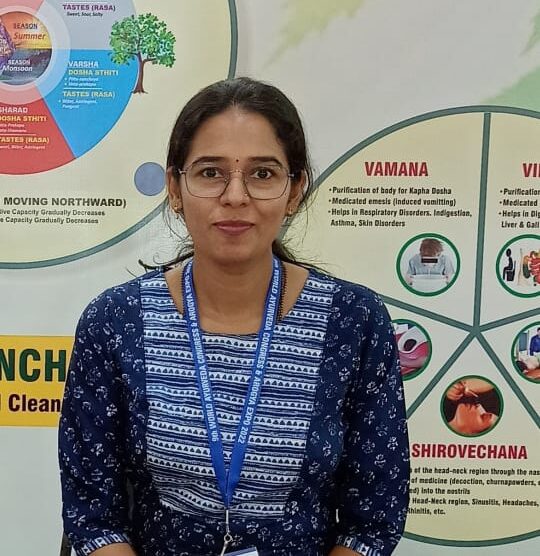
BAMS (Ayurvedcharya)
Dr. Adhishri Narvekar-Verenkar
Dr. Adhishri is an Ayurvedic physician with over a decade of experience in holistic healthcare. She specializes in women’s wellness, lifestyle management, and natural healing therapies. Passionate about making Ayurveda accessible, she shares her knowledge to help people live healthier, balanced lives.

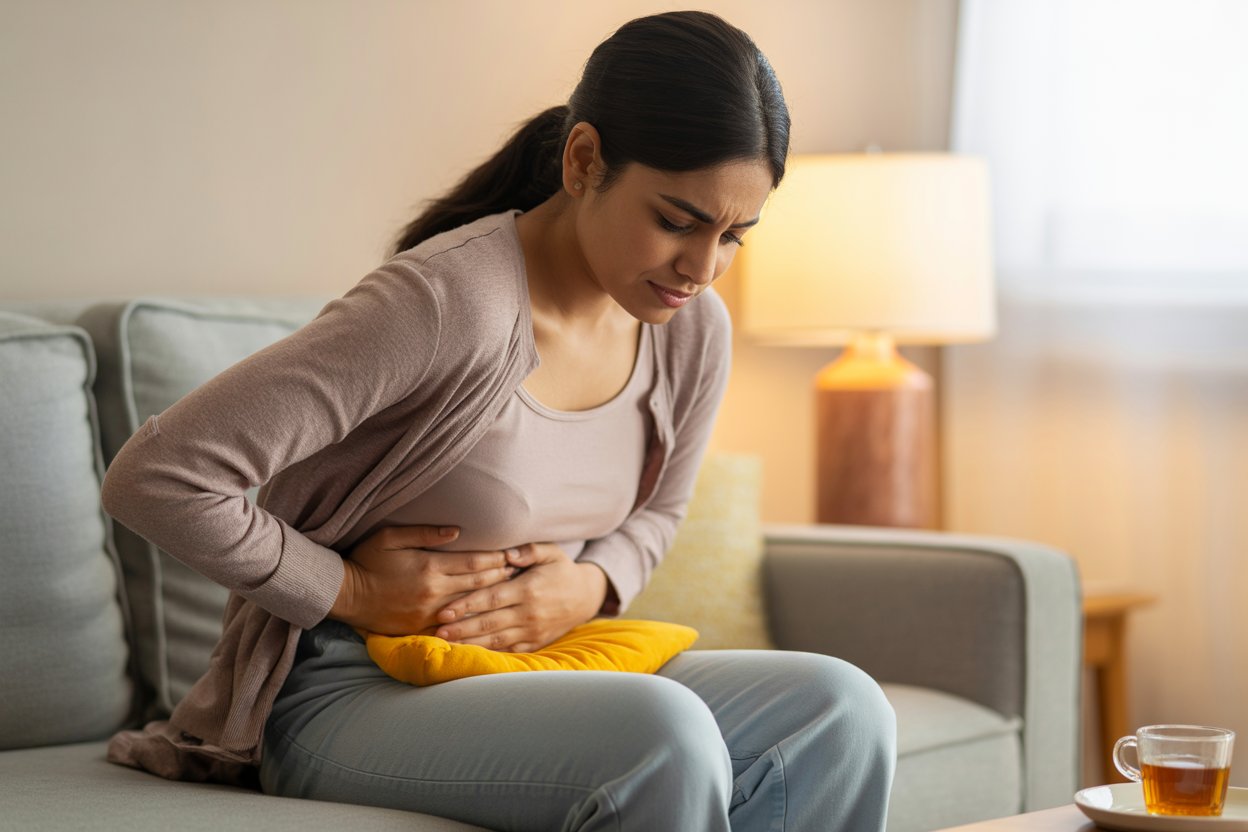
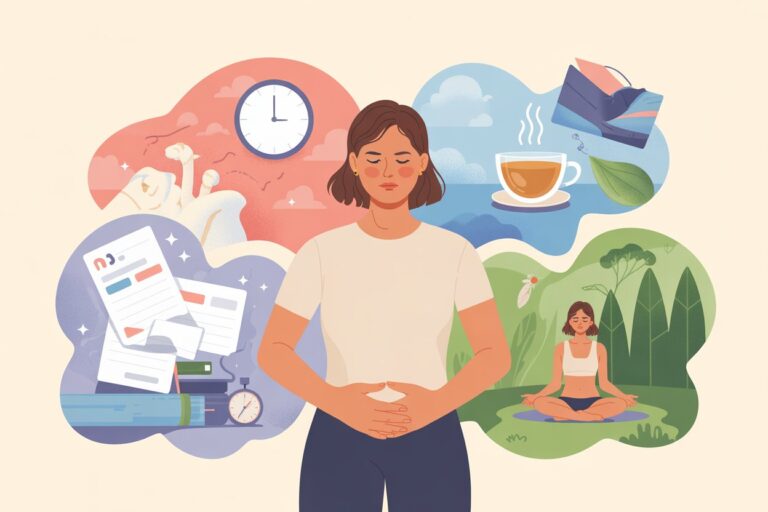
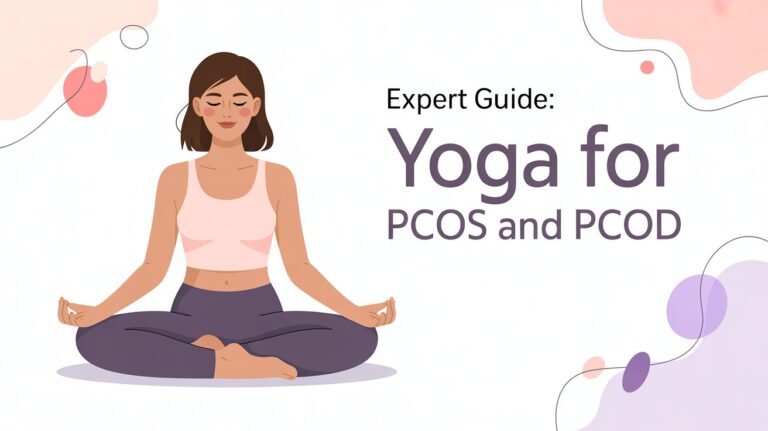
Very informative and useful.